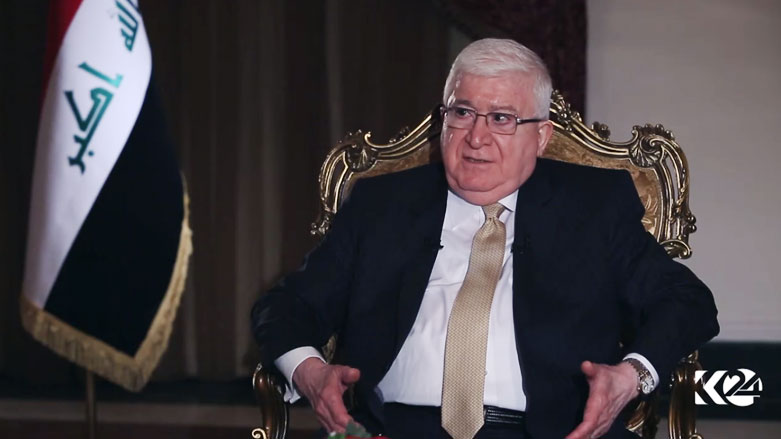Iraq's president orders controversial budget published

ERBIL, Kurdistan Region (Kurdistan 24) – The Iraqi President announced in a statement on Thursday that he had ordered the nation's controversial 2018 budget to be published in the Official Gazette of Iraq, the final stage for it to become law.
Iraq’s Parliament approved the bill on Mar. 3 in the absence of Kurdish politicians, who boycotted the session.
In mid-March, President Fuad Masum, a Kurd and co-founder of the Patriotic Union of Kurdistan (PUK), refused to approve the bill and returned it to the Parliament for amendment, citing multiple "constitutional, legal, and financial violations" within, according to a previous statement from his office.
Ordering publication in the Gazette without officially signing off on it is a way for the president to allow the law to go into effect while still registering his opposition to its provisions.
Baghdad reduced the Kurdistan Region’s share of the federal budget to roughly 12 percent, a significant drop from its previous 17 percent allocation, and set aside no funds for Peshmerga forces, the primary reason for representatives from the Region to protest the bill.
Earlier in the week, officials of the Justice Ministry, which publishes the Gazette, reportedly ordered the law finalized without the president's approval. In response, Masum threatened to sue the ministry in a statement released on Wednesday, claiming the order was a constitutional violation.
The Kurdish leadership has repeatedly criticized Baghdad for inserting the decrease in the draft budget without consulting Kurdish lawmakers, who point out that since the original number had been calculated based on population, it would require a census to justify such a change.
The 17 percent budget share was agreed upon between the KRG and the Federal Government of Iraq during the transitional period after the fall of the regime in 2003. No census has been conducted in the country since the 1980s, but there are an estimated 7 to 8 million people living in the Kurdistan Region, representing between 17 and 20 percent of Iraq's population.
Ties between Erbil and Baghdad have deteriorated considerably following the Sep. 25 referendum on independence for the Kurdistan Region.
